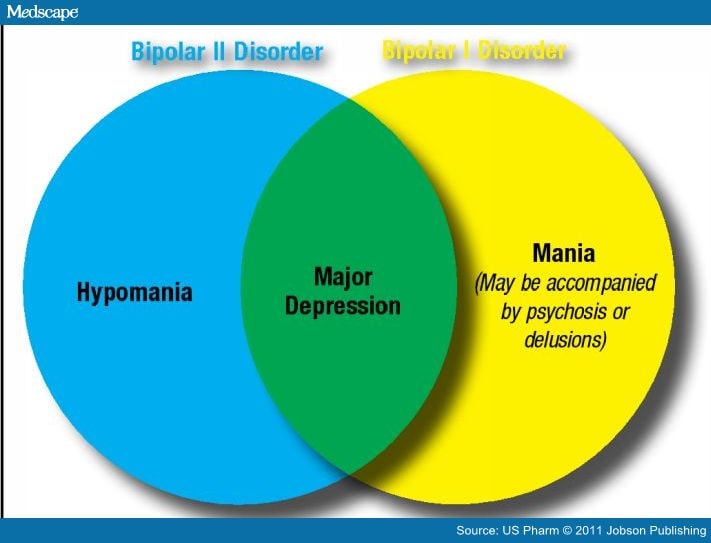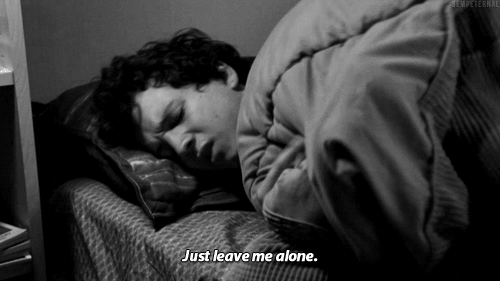Quiet the world of introverts
Epic Review and Quotes from "Quiet" (Book for Introverts) 2023
Share this post:
20 shares
Quiet is the book for introverts, focused on their more subtle, but important, powers in a world that favors extroverted traits. This post features a review, quotes, and resources to provide insight and self-help.
Quiet (the book for introverts) is a #1 New York Times bestseller, and it was named one of the best books of the year by People, O: The Oprah Magazine, Christian Science Monitor, Inc., Library Journal, and Kirkus Reviews. In fact, it spent several YEARS on the bestseller list.
Quiet: The Power of Introverts in a World That Can’t Stop Talking was written by Susan Cain, who graduated from Princeton University and Harvard Law School. She first became interested in studying introversion while struggling with public speaking at Harvard Law School. She left her career in corporate law and consulting, for a quiet life of writing about the power of introverts and how society can misunderstand or mischaracterize them.
Table of Contents
Summary + Review of Quiet by Susan Cain
I became interested in Quiet (the book for introverts) when a few introverted bloggers I follow described it as the book that made them feel “seen” for the first time in their lives. As an introvert myself, I knew I had to read it.
Summary of Quiet (The Book for Introverts)
Quiet is divided into four parts. In Part One, “The Extrovert Ideal,” Cain posits that the qualities of extroversion (gregariousness, the alpha type) are deemed to be “ideal characteristics in both work and life, and thus simply being an introvert can be deemed less than ideal.
For example, Harvard Business School, takes action to turn introverts into extroverts by rating performance on things like speaking up in class with performance. And the United States particularly promotes antidepressants and anti-anxiety drugs to “cure” introversion.
The “extrovert ideal” became widespread with Dale Carnegie’s popular teachings in How to Win Friends and Influence People, which focused on public speaking and sales skills.
But, Cain believes these American culture norms both misunderstand and undervalue introverts, to all of our detriments. After all, about one-third of us are introverts! This includes notorious leaders, such as Eleanor Roosevelt, Rosa Parks, Gandhi, Dr. Seuss, Steve Wozniak, and Einstein.
In Part Two of Quiet, “Your Biology, Your Self?” Cain explores inborn temperament and personality. She argues that humans have “rubber band” personalities, which can stretch beyond our intrinsic traits, but with limitations. She further argues that nothing is lost or gained by being an introvert or an extrovert — rather, it’s about using your intrinsic traits to your benefit, like Warren Buffet, who is an introvert who still became a successful businessman.
In Part 3 of Quiet, “Do All Cultures Have an Extrovert Ideal?” Cain notes that cultures other than American do not emphasize extroverted traits as a measure of success. For example, Gandhi became powerful in quiet ways. The American way can overlook that the right work environment can be more important than a personality trait.
For example, Gandhi became powerful in quiet ways. The American way can overlook that the right work environment can be more important than a personality trait.
Part 4 of Quiet, “How to Love, How to Work,” Cain helps the reader shift their personality traits situationally, and she explores interactions between extroverts and introverts. Lastly, she helps parents foster, rather than change, introverted traits of their children.
In the Conclusion of Quiet, “Wonderland,” Cain challenges the reader to be true to his or her self, and to seek out environments that suit their introversion, rather than forcing themselves to change. She also challenges managers to tap into the inner strengths of introverts.
Quiet now comes with Extra Libris material, including a reader’s guide and bonus content.
Buy on Amazon
Buy on Bookshop.org
Review of Quiet (the book for introverts)
Quiet is an important and insightful book that holds more power to me the longer time goes on since reading it.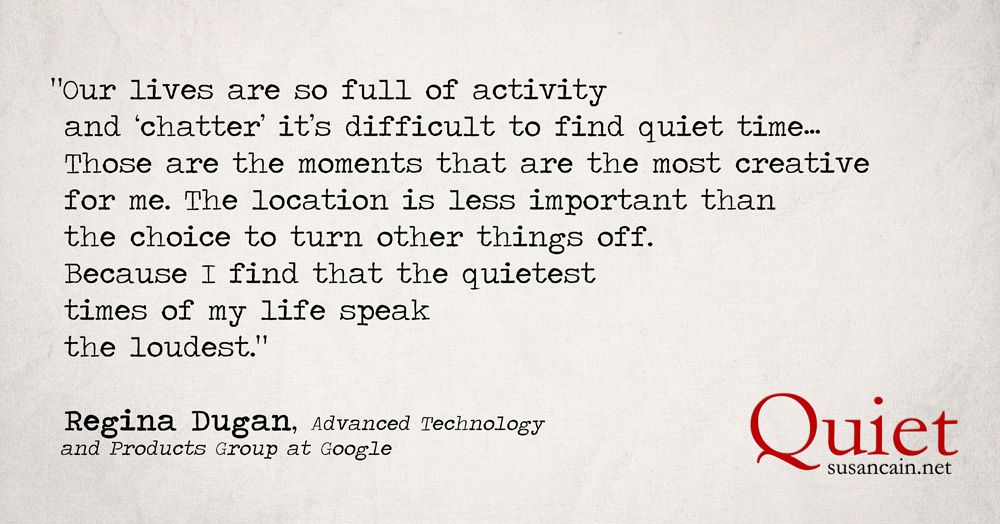
In the book, Cain heavily cites research in biology, psychology, neuroscience, and evolution, all of which make her argument credible, but also a bit dry. I much prefer relying on her research but actually referring to her arguments and tips in tidbits (like the quotes below).
I have definitely felt overlooked during the times I didn’t exhibit extroversion and, in that way, have felt seen by Quiet and think it’s important for society generally to recognize introversion and extroversion as “different” — but not better or worse.
Most characteristics about introversion I personally already knew: I prefer a glass of wine with close friends to a party. I think for a long time before I speak or act. I enjoy a hygge environment of solitude for both work and play, and I get overwhelmed in crowded, noisy environments. Quiet just help me reinforce the notion that this is introversion and remind myself to tap into this to reach my full potential.
So, what I am getting at is: I think Quiet helps introverts feel seen and extroverts learn something new about those who are different from them.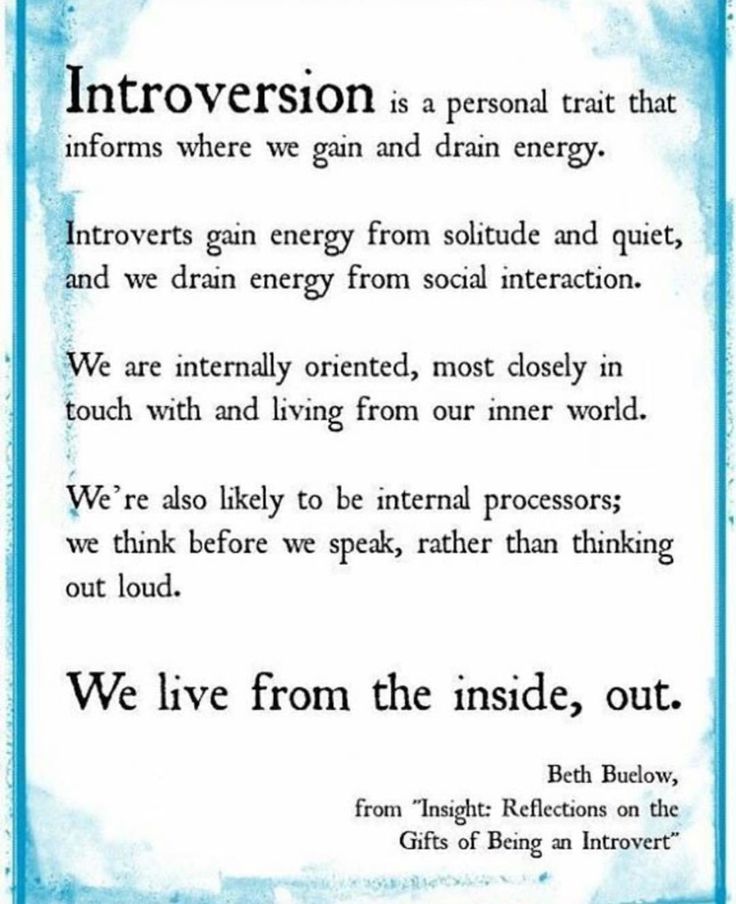 Both of these, at the end of the day, make the world a much better place, and I think that’s why Quiet has captivated so many readers for so many years.
Both of these, at the end of the day, make the world a much better place, and I think that’s why Quiet has captivated so many readers for so many years.
I’m so happy to have these reminders and so grateful Cain is helping society as a whole understand and value us better.
Buy on Amazon
Buy on Bookshop.org
Quotes from Quiet (The Book for Introverts)
Below are my favorite quotes from Quiet separated into three important categories:
- quotes about introversion, extroversion, and shyness;
- quotes about the extroversion “ideal” and it’s fallacies; and
- quotes about the power of introverts and best practice tips
Quotes about Introversion, Extroversion, and Shyness
“Introverts, in contrast, may have strong social skills and enjoy parties and business meetings, but after a while wish they were home in their pajamas. They prefer to devote their social energies to close friends, colleagues, and family. They listen more than they talk, think before they speak, and often feel as if they express themselves better in writing than in conversation. They tend to dislike conflict. Many have a horror of small talk, but enjoy deep discussions.”
They tend to dislike conflict. Many have a horror of small talk, but enjoy deep discussions.”
“Introverts, in contrast, may have strong social skills and enjoy parties and business meetings, but after a while wish they were home in their pajamas. They prefer to devote their social energies to close friends, colleagues, and family. They listen more than they talk, think before they speak, and often feel as if they express themselves better in writing than in conversation. They tend to dislike conflict. Many have a horror of small talk, but enjoy deep discussions.”
“Introverts feel ‘just right’ with less stimulation, as when they sip wine with a close friend, solve a crossword puzzle, or read a book. Extroverts enjoy the extra bang that comes from activities like meeting new people, skiing slippery slopes, and cranking up the stereo.”
“Introverts recharge their batteries by being alone; extroverts need to recharge when they don’t socialize enough.”
“Shyness is the fear of social disapproval or humiliation, while introversion is a preference for environments that are not overstimulating. Shyness is inherently painful; introversion is not.”
Shyness is inherently painful; introversion is not.”
Buy on Amazon
Buy on Bookshop.org
Quotes About The Extroversion “Ideal” and its Fallacies
“Introversion- along with its cousins sensitivity, seriousness, and shyness- is now a second-class personality trait, somewhere between a disappointment and a pathology. Introverts living in the Extrovert Ideal are like women in a man’s world, discounted because of a trait that goes to the core of who they are. Extroversion is an enormously appealing personality style, but we’ve turned it into an oppressive standard to which most of us feel we must conform.”
“The Extrovert Ideal has been documented in many studies, though this research has never been grouped under a single name. Talkative people, for example, are rated as smarter, better-looking, more interesting, and more desirable as friends.”
“As a child you might have overheard your parents apologize for your shyness. Or at school you might have been prodded to come ‘out of your shell’ — that noxious expression which fails to appreciate that some animals naturally carry shelter everywhere they go, and some humans are just the same.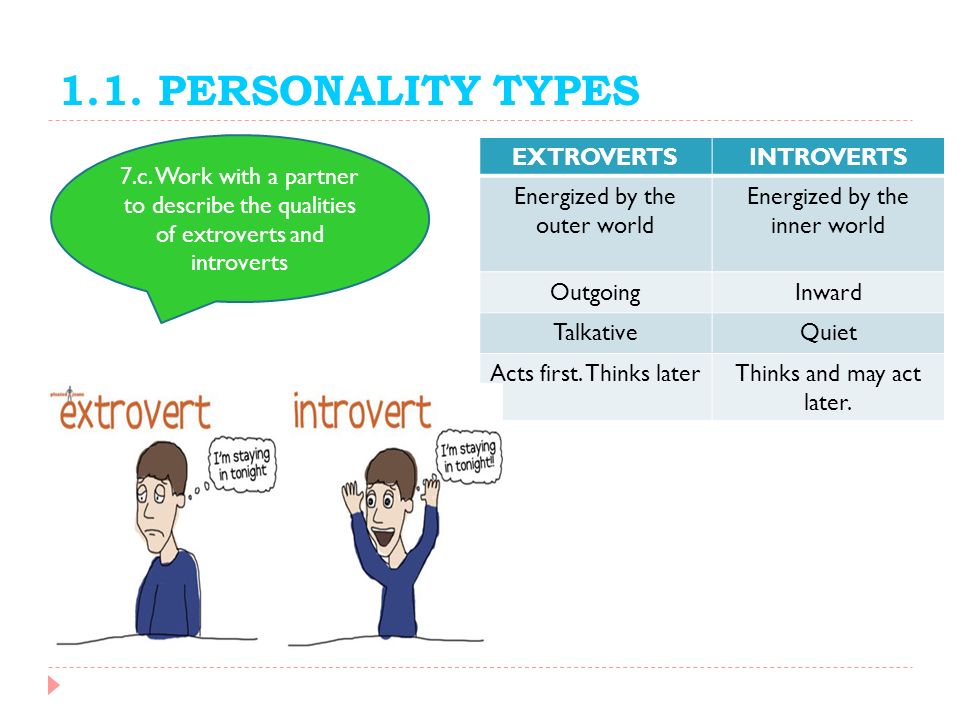 ”
”
“We’re told that to be great is to be bold, to be happy is to be sociable. We see ourselves as a nation of extroverts — which means that we’ve lost sight of who we really are.”
“The pressure to entertain, to sell ourselves, and never to be visibly anxious keeps ratcheting up.”
“I worry that there are people who are put in positions of authority because they’re good talkers, but they don’t have good ideas. It’s so easy to confuse schmoozing ability with talent. Someone seems like a good presenter, easy to get along with, and those traits are rewarded. Well, why is that? They’re valuable traits, but we put too much of a premium on presenting and not enough on substance and critical thinking.”
“There’s zero correlation between being the best talker and having the best ideas.”
“Some of the world’s most talented people are introverts. Without them we wouldn’t have the Apple computer, the theory of relativity or Van Gogh’s sunflowers.”
Buy on Amazon
Buy on Bookshop. org
org
Quotes about the Power of Introverts and Best Practice Tips
“Don’t think of introversion as something that needs to be cured.”
“Don’t mistake assertiveness or eloquence for good ideas.”
“The secret to life is to put yourself in the right lighting. For some, it’s a Broadway spotlight; for others, a lamplit desk.”
“We often marvel at how introverted, geeky, kid ‘blossom’ into secure and happy adults. We liken it to a metamorphosis. However, maybe it’s not the children who change but their environments. As adults they get to select the careers, spouses, and social circles that suit them. They don’t have to live in whatever culture they’er plunked into.”
“The same person who would never raise his hand in a lecture hall of two hundred people might blog to two thousand, or two million, without thinking twice. The same person who finds it difficult to introduce himself to strangers might establish a persence online and then extend these relationships into the real world.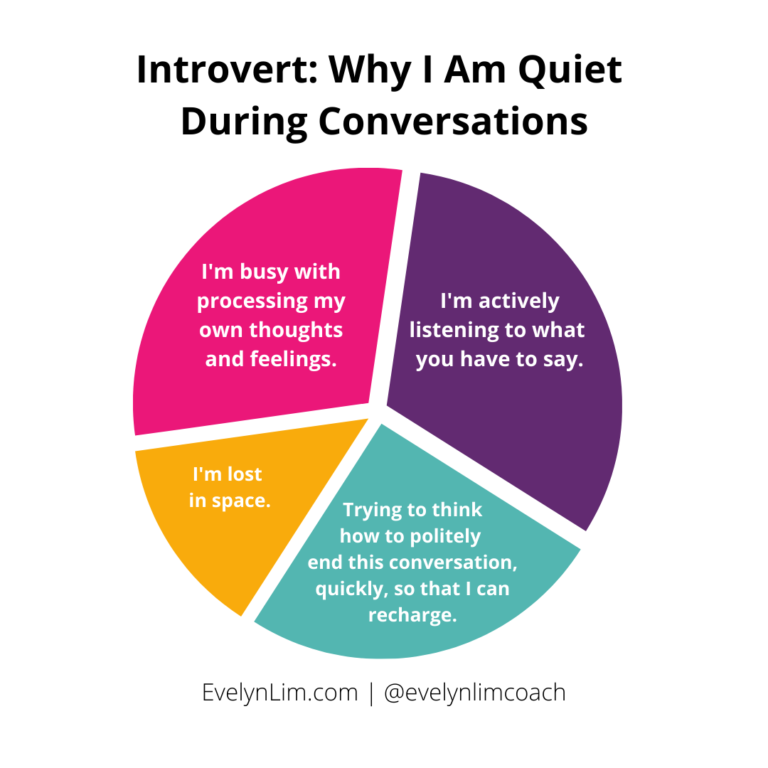 ”
”
“Introverts need to trust their gut and share their ideas as powerfully as they can. This does not mean aping extroverts; ideas can be shared quietly, they can be communicated in writing, they can be packaged into highly produced lectures, they can be advanced by allies. The trick for introverts is to honor their own styles instead of allowing themselves to be swept up by prevailing norms.”
“Anyone can be a great negotiator, I told them, and in fact it often pays to be quiet and gracious, to listen more than talk, and to have an instinct for harmony rather than conflict. With this style, you can take aggressive positions without inflaming your counterpart’s ego. And by listening, you can learn what’s truly motivating the person you’re negotiating with and come up with creative solutions that satisfy both parties.”
“Use your natural powers—of persistence, concentration, insight, and sensitivity—to do work you love and work that matters. Solve problems, make art, think deeply. ”
”
“Spend your free time the way you like, not the way you think you’re supposed to.”
“Love is essential; gregariousness is optional.”
“In a gentle way, you can shake the world.”
“So the next time you see a person with a composed face and a soft voice, remember that inside her mind she might be solving an equation, composing a sonnet, designing a hat. She might, that is, be deploying the powers of quiet.”
Buy on Amazon
Buy on Bookshop.org
More Resources
For more, check out author Susan Cain’s website “The Quiet Revolution,” which contains:
- TED Talk
- podcast
- articles and interviews
- resources for companies
- resources for schools
- resources for parents
I hope this summary and review, as well as these quotes and resources from Quiet (the book for introverts) helped you either tap into your own greatest potential and/or find someone else’s.
Buy on Amazon
Buy on Bookshop. org
org
Share this post:
20 shares
Book Review: Quiet: The Power of Introverts in a World That Can't Stop Talking
“In a gentle way, you can shake the world.”—Mahatma Gandhi
This quote is an excellent reflection of the author's focus in the book “Quiet: The Power of Introverts in a World that Can't Stop Talking,” by Susan Cain. The author discusses her view that introverts are highly undervalued, particularly in leadership positions. She holds the belief that extroverts are rated as “smarter, better-looking, more interesting, and more desirable,” and that introversion is considered a “second-class personality trait” (Cain, 2013). Her perspective originates from her own self-proclaimed status as an introvert and her experiences in the workplace. A common perception does exist that extroverts are the most effective communicators, and thus, make the best leaders (Bradley and Hebert, 1997). Research studies throughout time have consistently reaffirmed the belief that extroverts are more likely to emerge as leaders, and are more likely to be perceived as effective (Grant et al., 2011). Cain looks to dispel that belief and make an argument for the importance of introverts as leaders. This book is a great read for introverted individuals aspiring to become leaders, and for organizations seeking knowledge on how to provide a conducive environment in which introverted leaders can be successful. This work has important implications for many fields that are heavily dependent upon good leaders, as great emphasis has traditionally been placed on the importance of extraverted characteristics for leadership success.
Research studies throughout time have consistently reaffirmed the belief that extroverts are more likely to emerge as leaders, and are more likely to be perceived as effective (Grant et al., 2011). Cain looks to dispel that belief and make an argument for the importance of introverts as leaders. This book is a great read for introverted individuals aspiring to become leaders, and for organizations seeking knowledge on how to provide a conducive environment in which introverted leaders can be successful. This work has important implications for many fields that are heavily dependent upon good leaders, as great emphasis has traditionally been placed on the importance of extraverted characteristics for leadership success.
The book was divided into four parts. Part One, “The Extrovert Ideal,” focuses on this concept that the author defines as “the omni-present belief that the ideal self is gregarious, alpha, and comfortable in the spotlight.” She discusses the historical creation of the “Culture of Personality” that shapes our view of others. The author gives examples of how organizations, such as Harvard Business School, seemingly try to turn introverts into extroverts by equating such characteristics as speaking up in class with performance. The author also discusses positive characteristics that are attributed to introverts, such as creativity, and whether that is a true reflection. This section leads one to ponder the ethics of placing such attributions on individuals, whether introverted or extraverted, and the influence that can have on an individual's success.
The author gives examples of how organizations, such as Harvard Business School, seemingly try to turn introverts into extroverts by equating such characteristics as speaking up in class with performance. The author also discusses positive characteristics that are attributed to introverts, such as creativity, and whether that is a true reflection. This section leads one to ponder the ethics of placing such attributions on individuals, whether introverted or extraverted, and the influence that can have on an individual's success.
Part Two is entitled “Your Biology, Your Self?” In this section, the author discusses the connection between temperament and personality, and studies that have examined the influences of innate, inborn temperament on personality type. She uses scientific evidence to explain her so-called “rubber band theory” of personality, meaning that we are elastic and can stretch ourselves beyond our innate traits, but only within certain limits. The author also discusses the trade-off theory and the things that are lost or gained by being either an introvert or extrovert. Warren Buffett is used as an example of an individual that used his introvert qualities to his benefit to become successful and powerful.
Warren Buffett is used as an example of an individual that used his introvert qualities to his benefit to become successful and powerful.
Part 3, “Do All Cultures Have an Extrovert Ideal?” examines the idea that the Extrovert Ideal is an American standard that is not typical in other cultures. The author states that other cultures do not emphasize traits, such as class participation, as a measure of success. Gandhi is discussed as an example of a classic introvert that found power in his shyness. This leads one to think about whether we, as a society, focus on personality traits too much as a measure of an individual's capability of success in certain work environments.
Part 4, “How to Love, How to Work,” discusses the idea that we shift our personality traits based on the situation that we find ourselves in. The author also discusses the attraction between individuals of opposite personality types, as well as the potential difficulties in communication between introverts and extroverts.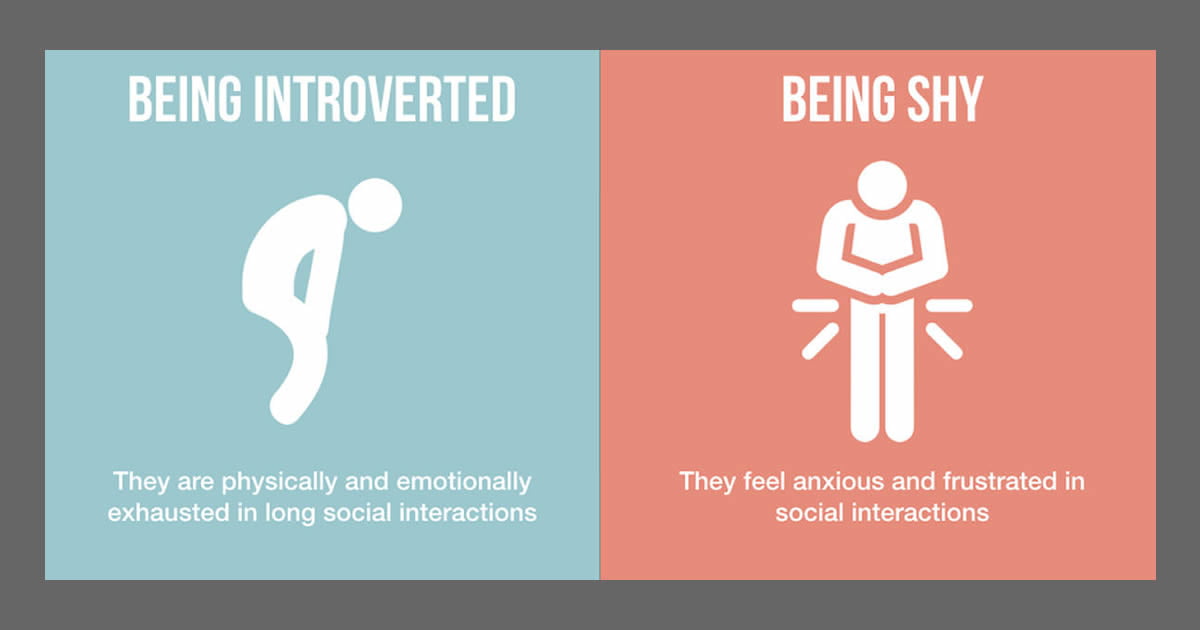 The author concludes with a discussion on how to foster traits such as depth and sensitivity, rather than trying to force introverted children to be extraverted.
The author concludes with a discussion on how to foster traits such as depth and sensitivity, rather than trying to force introverted children to be extraverted.
In the Conclusion, entitled “Wonderland,” the author urges readers to be true to their self, and to put themselves in situations that play well with their personality, rather than forcing uncomfortable situations. As she eloquently puts, managers should “make the most of introverts' strengths—these are the people who can help you think deeply, strategize, solve complex problems, and spot canaries in your coal mine.” These are definitely qualities that are valued in leaders in many fields. This book offers new insights and will serve as a valuable source of information for management professionals. In addition, it helps to shatter the belief that extroverted individuals are superior and provides a much needed change in perception for introverts hoping to become leaders.
Author Contributions
The author confirms being the sole contributor of this work and approved it for publication.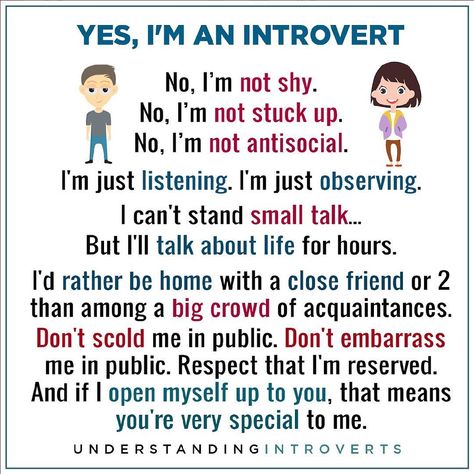
Conflict of Interest Statement
The author declares that the research was conducted in the absence of any commercial or financial relationships that could be construed as a potential conflict of interest.
References
Bradley, J. H., and Hebert, F. J. (1997). The effect of personality type on team performance. J. Manage. Dev. 16, 337–353. doi: 10.1108/02621719710174525
CrossRef Full Text | Google Scholar
Cain, S. (2013). Quiet: The Power of Introverts in a World that Can't Stop Talking. New York, NY: Broadway Books.
Grant, A. M., Gino, F., and Hofmann, D. A. (2011). Reversing the extraverted leadership advantage: the role of employee proactivity. Acad. Manage. J. 54, 528–550. doi: 10.5465/AMJ.2011.61968043
CrossRef Full Text | Google Scholar
Keywords: introversion, extraversion, personality, leadership, communication
Citation: Clack LA (2017) Book Review: Quiet: The Power of Introverts in a World That Can't Stop Talking.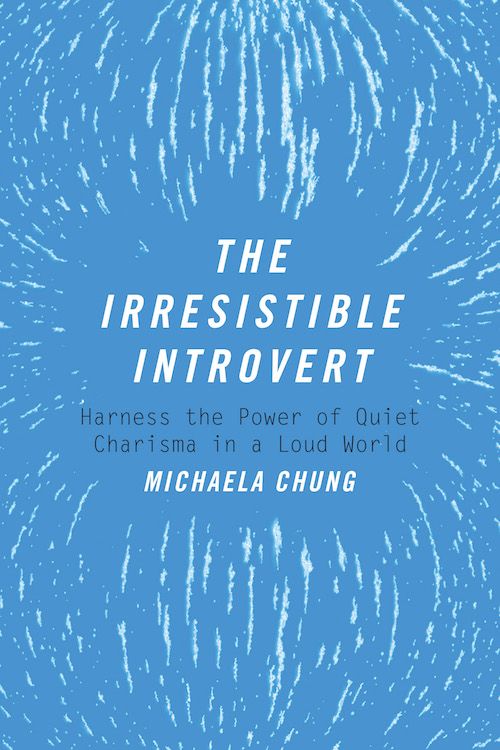 Front. Psychol. 8:155. doi: 10.3389/fpsyg.2017.00155
Front. Psychol. 8:155. doi: 10.3389/fpsyg.2017.00155
Received: 09 January 2017; Accepted: 23 January 2017;
Published: 07 February 2017.
Edited and reviewed by: Badri Bajaj, Jaypee Institute of Information Technology, India
Copyright © 2017 Clack. This is an open-access article distributed under the terms of the Creative Commons Attribution License (CC BY). The use, distribution or reproduction in other forums is permitted, provided the original author(s) or licensor are credited and that the original publication in this journal is cited, in accordance with accepted academic practice. No use, distribution or reproduction is permitted which does not comply with these terms.
*Correspondence: Lesley A. Clack, [email protected]
The world through the eyes of an introvert: what will an extrovert never say?
38,845
Man among menLonelinessKnow thyself
- Me (after smiling politely at a stranger passing by): “What a busy day! Well, that’s enough communication for today…”;
- When I'm wearing headphones, it means I don't want to talk to anyone.
When I have an earpiece in only one ear, I still don't want to talk.
When I took off my headphones, it's likely that I still don't want to talk to anyone. nine0008 - What phrases do I hear every day? “Why are you so quiet?”, “Are you sure everything is fine?”, “Why don’t you want to walk with us?”
- What I'm good at: read a book with 400 pages in one day. "Skip" a phone call and "forget" to answer SMS.
Receive an invitation to a party and... stay at home. - What do I think after I cheer myself up at a party with a few cups of coffee?
“Oh no. I feel like my head is spinning now. How I would like to be a cat and lie now at home on the window. nine0008 - Extroverts dream of having a lot of money and traveling all over the world with their friends.
An introvert dreams of having a lot of money and buying his own island and living on it. - I like being around people, I work with them all day long. But I live alone and I like it too.
I know it might sound weird, but it's true!
- I am an introvert, which is a polite way of saying that I have no interest in pointless small talk and relationships with people I don't feel like talking to. nine0008
- We introverts make friends easily. We especially like pets - we have this friendship for life.
- Being an introvert is when you sit all day in your room and your family, all extroverts, asks if you are lonely there, and you answer: “No, no, I'm not alone. I have me."
- Introverts do not want to look for new friends. We don't need more than two.
Two friends for an introvert are like thirty for an extrovert.
If you don't understand this, you are an extrovert. nine0008 - I don't want to go out. I've already talked to three different people on the phone today and I'm tired.
- Agree with all the statements, plus a million others. For example, when someone calls me, when he could just send a text!
- Introverts like to go to a party in a car alone so they can leave early!
Text: Maria Malygina Photo Source: Getty Images
New on the site0003
“The wife confessed to cheating. .. Now she has become more obedient, but what if everything happens again?”
“Is my husband an abuser? Help me understand”
Scientists have found out which men attract women the most
“Who gives life gives death”: how women perceive mother’s aging
Why do Russians run en masse to watch “Cheburashka”? Psychologist explains
Candid photos: how to be free in front of the camera — 6 secrets
“How can I help my husband prepare for the death of his beloved dog?” nine0003
is it so bad to sit at home and not talk to anyone
At school, children are taught to do tasks in a group, at the university there is a lot of speaking and interacting with people, and team skills are highly valued at work. For extroverts, all this is completely normal, while for introverts it is stress and an extra reason for alarm. However, according to Susan Cain, author of Introverts. How to use the features of your character”, every third person you know is an introvert.
Prejudice against introverts is deeply ingrained in our society: a child who prefers to play alone is sometimes judged by peers, and adults push him to be more social. As a result, from an early age we are forced to play by the rules of the world around us, which, oddly enough, is geared more towards extroverts: what are some universities with a large crowd of people or work offices with the open space format worth .
On the one hand, communication skills are certainly very important throughout life and are worth acquiring if only for the sake of not being left with nothing; on the other hand, is it worth overcoming yourself every time, renouncing the lifestyle that is close to you in order to gain more contacts, become the soul of absolutely any company, or choose noisy parties instead of a calm, quiet dinner with friends? Not really.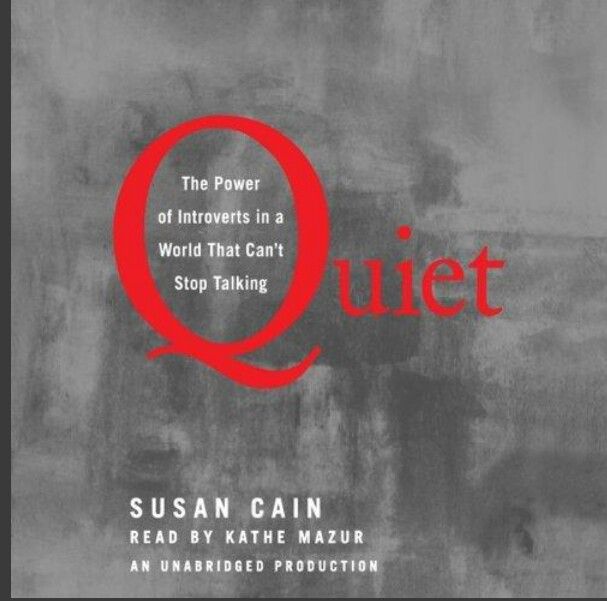 By acting in a way that is not natural for us, we risk forgetting who we really are and building our lives around activities and people that are completely not close to us. However, introverts, even if mechanically, still often continue to leave their comfort zone where it is not necessary to do this, but all because of certain stereotypes. nine0003
By acting in a way that is not natural for us, we risk forgetting who we really are and building our lives around activities and people that are completely not close to us. However, introverts, even if mechanically, still often continue to leave their comfort zone where it is not necessary to do this, but all because of certain stereotypes. nine0003
What's wrong with introverts
The first reason people don't understand how introverts survive is that we don't fully understand how introversion actually works. Some mistakenly believe that it is no different from shyness, although these two traits reflect fundamentally different states of the human psyche. Shyness is the fear of social judgment, while introversion is how we respond to cues from our environment, including interacting with people. Back at 19In the 1920s, Carl Jung said that an introvert is a person who draws energy from within himself, and not from interacting with others. He also said that in fact there are no pure introverts and extroverts, otherwise they would have gone crazy a long time ago, so there is still such a thing as ambiversion, something between extraversion and introversion.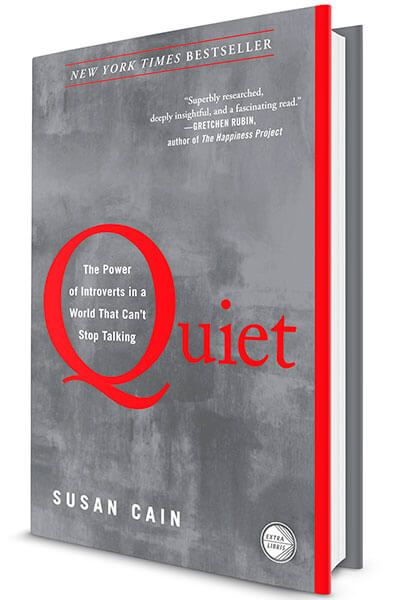 But, one way or another, many of us, albeit to varying degrees, belong to one of two types.
But, one way or another, many of us, albeit to varying degrees, belong to one of two types.
Extroverts need a lot of stimuli to feel good, while introverts, on the contrary, are more comfortable being alone
The study also showed that, for example, in the process of communication, as well as in moments of winning, extroverts produce more of the hormone dopamine than introverts. At the same time, the desire to limit contacts does not mean that the introvert will refuse to be part of the team or will not want to do his job, rather, on the contrary: he will approach more responsibly what is entrusted to him, pay attention to important details and complete the task better than the extrovert, which is often (but by no means always) sprayed into several cases at the same time. nine0003
The second reason why introverts are misunderstood and sometimes even condemned is the belief that creativity and productivity are only possible when jobs are tightly clustered. Accordingly, people who find it easier to find solutions and offer ideas when they are calm and alone are perceived as outcasts, and introverted children also become difficult to educate, although they simply do not want to work in a group.
Accordingly, people who find it easier to find solutions and offer ideas when they are calm and alone are perceived as outcasts, and introverted children also become difficult to educate, although they simply do not want to work in a group.
Many teachers describe the ideal student as an extrovert, which is ironic since introverts tend to be more well-read and get better grades. One study confirmed that the prefrontal cortex of introverts is thicker than that of extroverts, indicating depth of thought and a tendency to plan. nine0003
According to Susan Cain, introverts also rarely become leaders, which is not good, because due to the desire to plan work and life in general, they are less impulsive, and therefore not prone to thoughtless risk-taking and emotional decision-making. A study by Professor Adam Grant of the Wharton Business School showed that introverts can be good leaders for active and independent workers who do not need to be inspired or motivated to take initiative. An introvert leader can listen carefully and delegate complex interesting tasks to other employees, while an extrovert is more likely to “suffocate” with his presence, activity and unintentional inspiration with his own ideas. nine0003
An introvert leader can listen carefully and delegate complex interesting tasks to other employees, while an extrovert is more likely to “suffocate” with his presence, activity and unintentional inspiration with his own ideas. nine0003
Or are they okay?
The fact that introverts make up 30-50% of the population already suggests that being less social than other people is not at all ashamed, because it does not affect whether you will be successful in your career or personal life. Mark Zuckerberg, Abraham Lincoln, Warren Buffett and many other world famous personalities positioned themselves as introverts, and Bill Gates once said in one of his public speeches: "If you are smart, you can find advantages in your introversion." nine0071
Charles Darwin spent a lot of time alone in the woods and refused dinner parties with enviable regularity, and Theodor Geisel, known as Dr. Seuss, a children's book author and cartoonist, invented many of his characters while sitting in the backyard of his house in California. He also avoided meeting children who read his books, because he was afraid that he would not live up to their expectations and would turn out to be too ordinary, reserved person for them.
He also avoided meeting children who read his books, because he was afraid that he would not live up to their expectations and would turn out to be too ordinary, reserved person for them.
Edition The Hustle interviewed introverts who are in leadership positions and here is how these people talk about their introversion:
“An introvert is someone who prefers isolation… Someone who is not necessarily asocial, but someone who excels at internal work processes” - David Acosta, co-founder of Rebel PR
"I feel refreshed and rejuvenated when I can spend time in silence on a regular basis" - Dan Purcell, co-founder of Ever in Touch
"Being an introvert doesn't mean you're a loser or socially awkward person, it just means you need to be alone when others want to be with people." - Kevin Pasko, co-founder of Nested Naturals
In other words, introversion is not a signal that a person lacks social skills; it is likely that he has them in abundance, but he simply does not want to interact with others as often as extroverts do. Of course, you need to cooperate, otherwise the union of introvert Steve Wozniak and extrovert Steve Jobs would not have arisen, but being alone is very valuable in itself, and for some it is also vital. nine0003
Of course, you need to cooperate, otherwise the union of introvert Steve Wozniak and extrovert Steve Jobs would not have arisen, but being alone is very valuable in itself, and for some it is also vital. nine0003
3 tips for introverts and more
Stop forcing group work on people
Effective work can only be achieved by creating an easy and relaxed communication style for each employee. Meeting and sharing ideas, solutions is good for both extroverts and introverts, but by putting too much emphasis on working together, we forget to pay due attention to personal life, freedom and independence. Similarly in schools, we must teach children to communicate and solve problems together, but in the same way we must teach them to think for themselves. nine0003
Be alone with nature
Of course, you don't need to renounce social life and start building yourself a hut in the depths of the forest, but it won't be superfluous to periodically disconnect from the outside world in order to be alone with yourself, your feelings and thoughts.

